
ACRO and its members advocate as the collective voice of the innovative clinical research industry to regulators and policymakers, educating stakeholders and shaping policies that foster efficient, effective and safe conduct of clinical research. ACRO and CDISC share many members; these members and the ACRO staff serve on various CDISC steering committees, providing guidance for a variety of projects to further the CDISC mission.

ARO Council's mission is to build a network of academia nationwide, promoting cooperation, and contributing to the improvement of public health through safer and more effective medical treatment. ARO Council was initiated in Japan by Prof. Masanori Fukushima of the Translational Research Informatics Center (TRI), Foundation for Biomedical Research and Innovation. The ARO Council has now expanded beyond Japan to Taiwan, Singapore and South Korea.

The Critical Path Institute (C-Path) is a nonprofit, public-private partnership with the US Food and Drug Administration (FDA) created under the auspices of the FDA's Critical Path Initiative program in 2005. C-Path's mission is a catalyst in the development of new approaches to advance medical innovation and regulatory science.
CDISC and C-Path have a long and successful history of collaborating via the Coalition for Accelerating Standards and Therapies (CFAST) initiative, which has resulted in the development of numerous Therapeutic Area User Guides.

CDISC is developing a data structure for the IMI’s DRAGON project, which aims to use artificial intelligence (AI) and machine learning to develop a decision support system capable of delivering a more precise coronavirus diagnosis and more accurate predictions of patient outcomes.
CDISC standards will be used to develop the data structure (metadata and terminology), which will enable the aggregation of data used to train the AI, leading to more rapid and accurate diagnoses and prognosis of patients. CDISC will also develop a user guide for modelling observational data and expand our COVID-19 Therapeutic Area User Guide to include imaging concepts. For more information, please visit the DRAGON home page.

Droice Labs’ mission is to enable evidence-driven medicine at scale using real-world patient data (RWD). CDISC and Droice are working together to develop methods and guidelines for transforming messy, noisy RWD like EHR, lab exams, claims, etc., into regulatory-grade, submission-ready data for regulators like the FDA and EMA. By leveraging an AI and software-based approach, our partnership will demonstrate a rapid, scalable, and cost-effective way to use RWD for regulatory decision making.

EMBL-EBI makes the world’s public biological data freely available to the scientific community via a range of services and tools, performs basic research and provides professional training in bioinformatics. CDISC collaborates with EMBL-EBI in a number of ways and has held workshops and symposia in collaboration with EMBL-EBI.

CDISC and Embleema Inc. are collaborating to develop new standards for experimental assays and bioinformatics protocols to accelerate the development of availability of new cell and gene therapies for patients.
The collaboration will cover standards development in three areas:
- Protocols for experimental assays and bioinformatics pipelines for evidence generation and submission to the regulation bodies
- Provenance and privacy with relation to the patient CGTP datasets
- Longitudinal data linkage and patient engagement
Once released, the standards will be freely available via the CDISC website.

Healthcare Information and Management Systems Society, Inc. (HIMSS) is a global advisor, thought leader and member association committed to transforming the health ecosystem. CDISC has collaborated with IHE to develop nine IHE integration profiles for clinical research. Organizations that use these standards can eliminate the need for cumbersome, research-related verification steps and redundant data entry, improving data quality and trustworthiness.
HIMSS encourages using CDISC standards and EHR data for clinical research; CDISC supports HIMSS strategic initiatives for advancing interoperability standards to achieve health IT integration. The two organizations develop and disseminate information and standards documentation on the role of IHE profiles and CDISC standards in advancing clinical research.

The Innovative Medicines Initiative (IMI) works to improve health by speeding up the development of, and patient access to, innovative medicines, particularly in areas where there is an unmet medical or social need. IMI is the world's biggest public-private partnership in the life sciences. It is a partnership between the European Union (represented by the European Commission) and the European pharmaceutical industry (represented by EFPIA, the European Federation of Pharmaceutical Industries and Associations).
CDISC participates on IMI-Consortia projects to enhance the use of information gathered for the purpose of developing safer, more effective innovative medicines for patients.
IMI-funded organizations can receive a 20% discount off CDISC annual membership fees at either the Gold or Platinum Levels.

The Joint Initiative Council for Global Health Informatics Standardization to further the important role of health informatics standards to:
- Enable interoperability of information and processes across health domains
- Support the timely, efficient delivery of safe, coordinated, accountable, high-quality health services to individuals, communities and populations
- Facilitate effective global markets for health information systems
The Council, operating as a council of equals and as a liaison group under ISO/TC 215, consists of the respective leaders and appointed liaison members of the participating SDOs to a maximum of three members per SDO. Members include: CDISC, CEN Health Informatics TC251, DICOM, GS1, HL7, IHE, ISO TC215, and SNOMED.
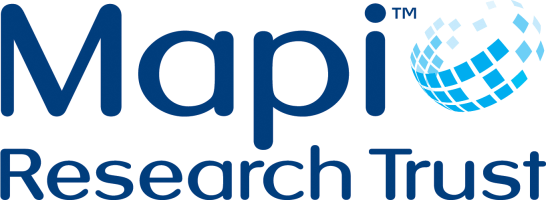
Mapi Research Trust is dedicated to improving patients’ quality of life by facilitating access to Patient-Centered Outcome (PCO) information. Mapi Research Trust promotes scientific approaches in the PCO field and encourages exchanges between academics, pharmaceutical companies, and international organisations around the world in the service of incorporating the patient’s voice into every step of the development process of new treatments.
CDISC and Mapi Research Trust work together to ensure copyrighted instruments are available to CDISC to create QRS supplements by leveraging PROQOLID™, Mapi Research Trust’s comprehensive online database designed to assist academic researchers, physicians, students, pharmaceutical companies, health authorities, and international organizations in the search and evaluation of COAs.

NCI EVS is a founding partner in the development of Controlled Terminology content, tools, and services to accurately code, analyze and share cancer and biomedical research, clinical and public health information. CDISC and NCI-EVS work together to create Controlled Terminology that is linked to other common research semantics through EVS tools for CDISC Foundational Standards and Therapeutic Area User Guides. NCI is an active participant throughout CDISC’s global community, providing subject matter expertise on many steering committees to implement strategic goals.
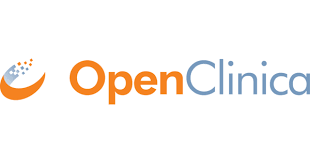
OpenClinica collaborated with CDISC to instantiate electronic Case Report Forms (eCRFs) from the CDISC eCRF Portal into OpenClinica’s Electronic Data Capture (EDC) content library so that academic institutions and researchers can leverage the eCRFs to easily adopt CDISC Standards while capturing data for their studies. The project aims to improve data collection in clinical studies with the goal of driving research forward. The collaboration allows the academic community to reap the many benefits of connecting RWD to CDISC standards, including improvements in data sharing, cross-study analysis, and meta-analysis of data.
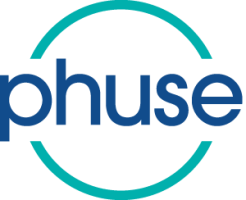
PHUSE is an independent, not-for-profit organisation run by a worldwide team of volunteers whose mission is sharing ideas, tools and standards around data, statistical and reporting technologies to advance the future of life sciences.
CDISC and PHUSE combine efforts on key initiatives around beginning-to-end standards and semantics, strengthening an interdependent process. One initiative is the CDISC Primer, which comprises a series of short, animated videos as well as helpful links to introduce newcomers to the suite of CDISC Standards.
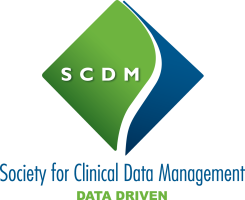
SCDM’s mission is to connect and inspire professionals managing global health data with global education, certification and advocacy.
CDISC and SCDM share many members and volunteers and have aligned missions of improving global clinical data management and support each other through events and initiatives that further this mission.
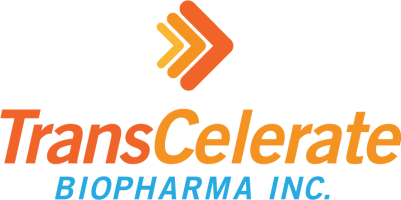
TransCelerate BioPharma’s mission is to collaborate across the global biopharmaceutical research and development community to identify, prioritize, design and facilitate implementation of solutions designed to drive the efficient, effective and high quality delivery of new medicines.
CDISC and TransCelerate share many members and volunteers and are active in many work groups including data standards, CDASH-SAE Supplement v2.0, Protocol and most recently on the Digital Data Flow project. TransCelerate volunteers have also provided subject matter expertise to the development of Foundational and TA standards.

Vulcan is an HL7 accelerator project that seeks to connect the world of clinical care, where data is routinely collected in Electronic Health Records (EHRs), with the research field, where data is often needed for clinical trials and other research activities. It leverages the HL7 FHIR standard to facilitate the seamless exchange of healthcare data between these two domains. This ensures consistent data formats and terminology, making it easier to share and analyze research-relevant information from EHRs. To accomplish this, Vulcan brings together a diverse group of stakeholders in the healthcare and research fields. This includes government agencies, academia, technology vendors, patient organizations, and industry consortiums. The initiative focuses on creating FHIR implementation guides that define how specific types of clinical research data should be represented and exchanged using FHIR. These guides provide clear instructions for both data providers (e.g., hospitals) and data consumers (e.g., researchers). The benefits include faster research, improved efficiencies, and enhanced data quality.